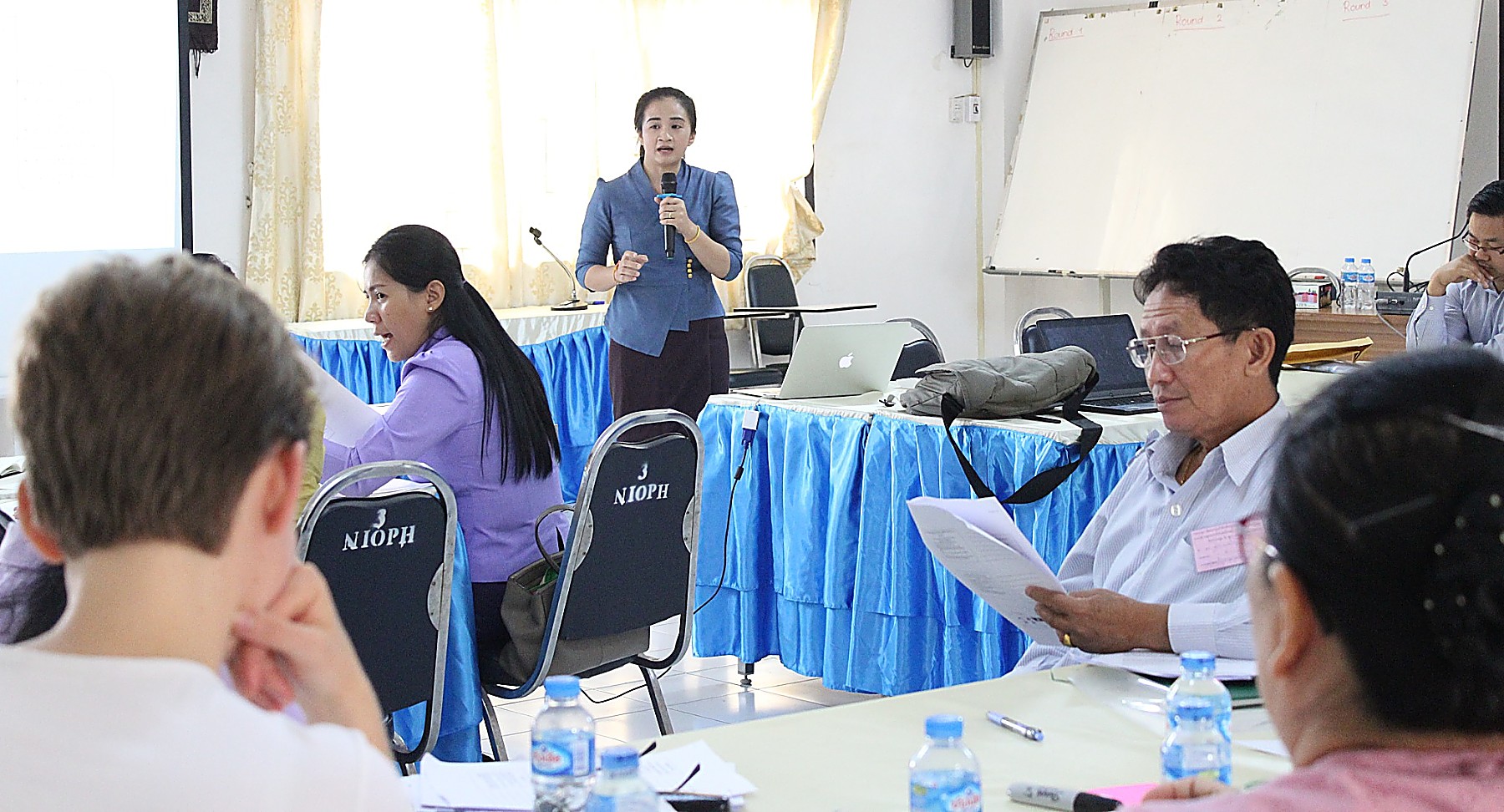LEARN Lao PDR - Research Café on Teen Pregnancy and Adolescent Sexual and Reproductive Health, Vientiane, Laos.
Discussion details
An innovative Research Café recently brought together health practitioners, development specialists and researchers from a broad spectrum of government and civil society in Laos, all with an interest in improving adolescent sexual and reproductive health. The topic of this particular event was teen pregnancy. Lao PDR has one of the highest adolescent pregnancy rates among the countries in the region, with 94 in 1000 adolescents girls, aged 15 -19 being pregnant (UNFPA 2016). Teenage pregnancy is not just a health issue, as it also impacts nutrition, along with maternal and infant mortality.

Organisers Dr. Viengnakhone Vongxay and Dr Souksamone Thongmixay hoped that, by creating an informal setting – where participants could join in free flowing discussions, games and social interaction, information sharing and brainstorming – the Research Café would offer a more creative format for problem solving and foster an openness to consider alternate approaches to addressing health issues in Laos. The idea was in part inspired by a sister project in Bangladesh, Health Dialogue for Citizens.
Some of the key findings of the Laos Research Café include:
- A policy implementation gap is evident: the government has many policies in place, for instance covering adolescent sexual and reproductive health, but they are often not effectively implemented and do not penetrate the rural landscape with its many challenges of access, language and cultural barriers.
- Broad engagement is needed: research should inform the wider public and engage many different actors in shaping policy. Dialogue on teenage pregnancy needs to involve a broad cross section of interested parties, from researchers to health professionals to civil society (NGOs and NPAs) and policymakers. It is also important to give voice to adolescents themselves; youth should be involved in developing any guidelines targeting youth
- Investment required to support the recommendations on ASRH. Additional resources will need to be invested by the Ministry of Health government to ensure adequate service delivery. Youth friendly services should be the focus, with improvements in number of sites as well as human and material resources available. Service providers require further training.
- Entry points. SRH should be integrated into the teaching and curriculum of schools. Other points of entry include using peers, youth groups and clubs, parents, and community leaders. Community leaders can play a vital role in raising awareness and understanding. Researchers must design powerful messages to reach policy makers and encourage new investment.
- Consider experiences of ongoing projects. One of the café’s participants, UNFPA, has found education to be the best option to reduce teenage pregnancy. A Peer-to-Peer approach is being developed, whereby school-going children are linked to those outside their own communities, thus addressing a key gap in terms of coverage. Another suggestion was to embed Sexual and Health Education in all relevant subjects in order to take the focus off a dedicated class, therefore reducing pressure on teachers that might feel uncomfortable. There are numerous participatory, interactive and ice-breaking methods that could be used to transfer information.

*This research is funded by the LEARN Programme, an EU-funded five-year initiative to strengthen the role of evidence based research in policymaking as well as enhancing the capacity of Lao health agencies such as the Lao Tropical and Public Health Institute (LaoTPHI) and the University of Health Sciences. Coordinated by MCNV, the LEARN Programme also includes Vrije Universiteit Amsterdam.

Log in with your EU Login account to post or comment on the platform.